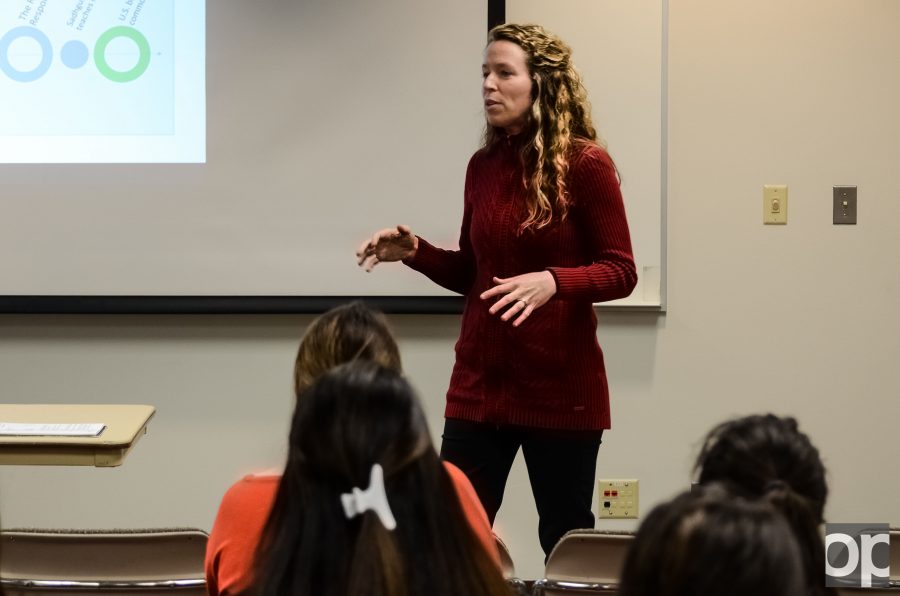OUCARES event teaches meditation techniques for individuals with autism
On Jan. 19, the Oakland University Center for Autism (OUCARES) welcomed individuals with autism, parents, caregivers, educators, therapists and social workers to discuss the health benefits of meditation specifically designed for those with autism.
In the grand scheme of everyday life, it can be difficult to find time for relaxation and self-care. For individuals affected by autism spectrum disorder, relaxation can seem even further out of reach.
On Jan. 19, the Oakland University Center for Autism (OUCARES) welcomed individuals with autism, parents, caregivers, educators, therapists and social workers to discuss the health benefits of meditation specifically designed for those with autism.
The event, called “Help Yourself and Meditate,” featured guest speaker Jennifer Giordano, a doctor of osteopathic medicine and psychiatrist.
“[This event is] improving quality of life of individuals with autism, their families and [a] larger community,” said Kristen Rohrbeck, director of OUCARES.
Rohrbeck said Giordano works with individuals with special needs to develop self-regulation techniques through meditation. These techniques are especially beneficial for autistic individuals, who may struggle with emotional coping.
“A lot of times, people with autism have difficulties in coping with anxiety, and they do not know how to [deal] with negative emotions or stressful situations,” Rohrbeck said. “Meditation could potentially be a great way for them to self-regulate and deal with those difficult emotions.”
According to Rohrbeck, traditional treatment does not include meditation.
“Traditional medicine is often giving people a pill,” Rohrbeck said. “This is just a different way of going about that. We are really trying to get that across through this event.”
OUCARES strives to build autism awareness, increase inclusion opportunities and provide supportive programs for families and individuals affected by autism, according to its website.
Events like this help the organization meet these goals.
“The families oftentimes do not have coping strategies, either,” Rohrbeck said. “This can be a great way for parents to de-stress, unwind, learn how to refocus their attention and energy [in order to] feel confident in caring for the loved one.”
Rohrbeck began meditating within the last month and said she feels more focused and present in the moment.
“I have two little girls at home, and meditation helps clear your head and focus on yourself and understand that you are important,” she said.
Giordano spoke about the history of mediation and common misconceptions that deter people from meditating. She also gave a 15-minute session of Isha Kriya, which is a type of free, guided mediation.
“[Meditation] gives the opportunity to become more aware and to create some distance between oneself and one’s thoughts and emotions,” Giordano said. “Once a person is aware of their thought process and experiences some distance from it, naturally, suffering is relieved.”
Giordano said people who meditate are seeking stress relief. Common health benefit pursuits include reduced blood pressure, pain relief, improved sleep, as well as existential aspects.
“[Meditation] has put me deeply in touch with myself [and] the deepest part of me,” Giordano said. “In that, has brought forth a joy and love for life that I did not know was possible. It has brought me back to life from being a stressed, worried and tense person to someone who feels passionate, vibrant, and free.”
Overall, Giordano said meditation has helped her become “in touch with with the amazing natural buoyant joy of simply being alive.”






